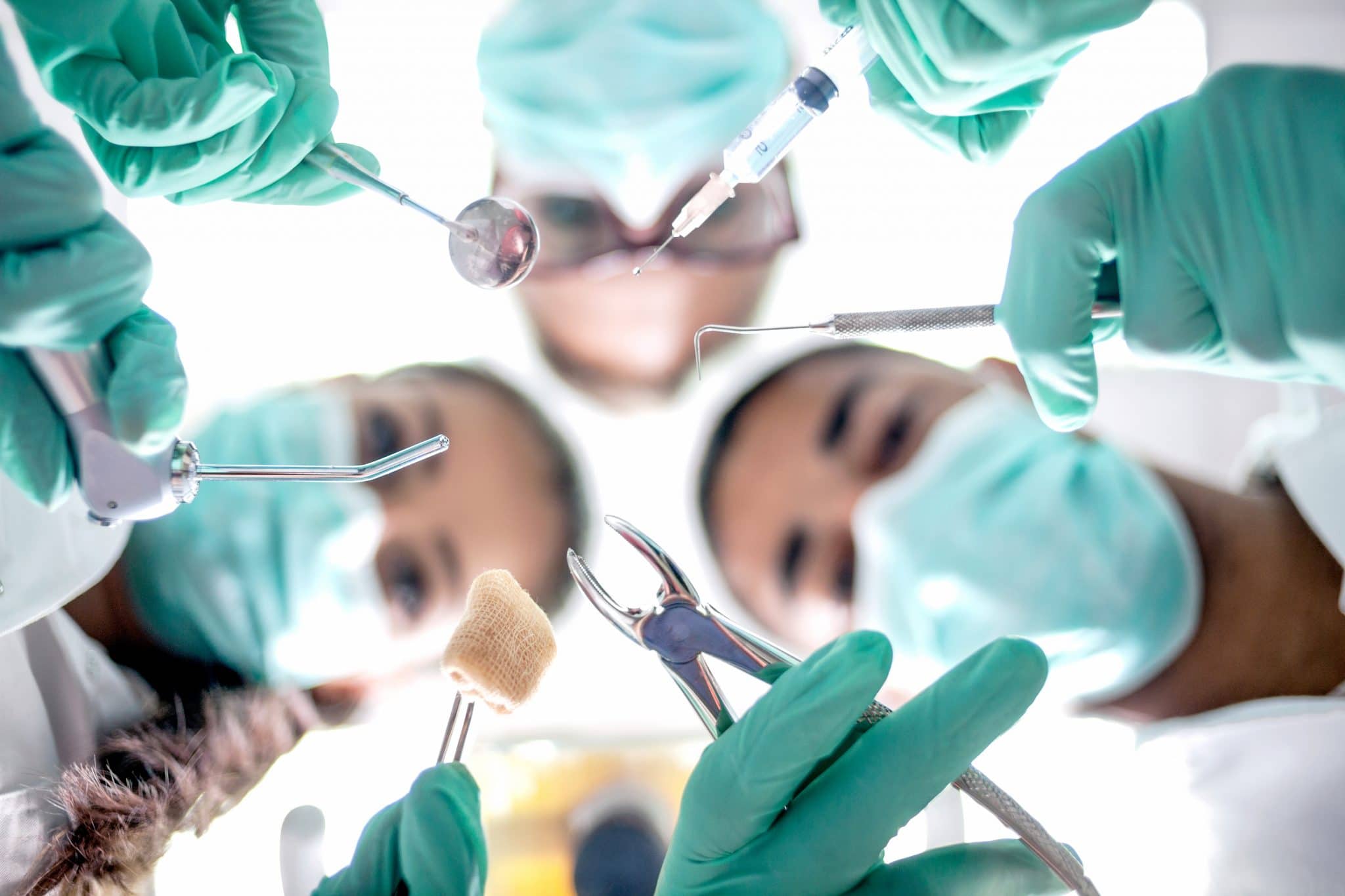If you have been recommended for dental surgery it is normal to feel anxious or wonder about the safety of anesthesia. With any surgery there are risks involved. Asking questions is important, and knowing what the risks are is also another factor the patient should research before they move forward with surgery. At North Texas Oral & Facial Surgery, we provide safe and effective anesthesia methods only when necessary, for our patients. We safely monitor the patients during any oral surgery, and make sure they are comfortable. Our team provides uncompromised safety using high end technology to give patients an exceptional experience when they visit our office.
What Are the Types of Anesthesia Used During Dental Surgery?
Local Anesthesia
Local anesthetics are commonly used in dentistry, and this is used to block the nerves so there is no pain. Local anesthesia is typically used for routine dental procedures such as fillings or crowns. Risks with this type of anesthesia are rare and this method is a great way to keep patients calm and relaxed during a procedure.
Sedation
Sedation dentistry is administered by breathing in nitrous oxide, medication, or via IV into the patient’s arm. This form of anesthesia allows the patient to be somewhat conscious during their procedure. Sedation dentistry is safe, and doctors undergo extensive training to be able to provide this service.
General Anesthesia
General anesthesia is typically done in a hospital setting, and requires an oral surgeon and anesthesiologist. This type of anesthesia can have side effects such as nausea or vomiting. The patient must be monitored closely while under general anesthesia.
A tube is used for breathing, and this tends to get in the way of dental surgery. Sedation is more commonly used because it can be controlled and reversed easier, compared to general anesthesia. Most dentists offer sedation dentistry because it is also easier to administer, and safely perform the surgery when the patient is somewhat conscious.
What Are the Risks Involved?
During your consultation we will thoroughly review your medical history and make sure you understand what is involved. We will discuss the method of sedation with you, so you are comfortable and know what to expect. Our doctors have extensive training in sedation dentistry, and this includes handling emergencies. Complications or death with anesthesia are rare, but it is always important to discuss your medical history before you undergo any surgery. Allergies and alcohol abuse are a common factor that could increase your risk for complications.
Complications of Anesthesia
- Dizziness
- Nausea
- Vomiting
- Swelling or numbness in the mouth
- Swelling at the injection site
Dental surgeries are very common and when done by a skilled doctor, they are completely safe. At North Texas Oral & Facial Surgery, we provide an environment where patients can remain relaxed, and know they are in good hands.
Interested in Finding Out More?
If you are interested in finding out more about dental surgery contact North Texas Oral & Facial Surgery, and our staff will be happy to assist you.



